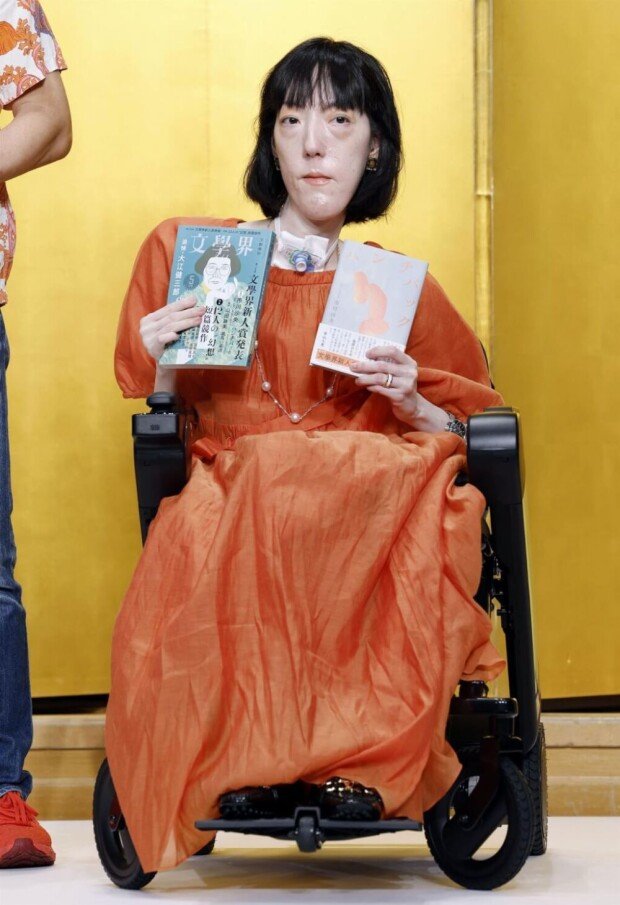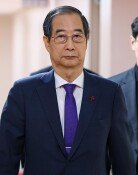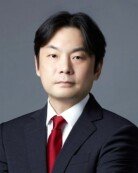Sao Ichikawa wins the 2023 Akutagawa Prize
Sao Ichikawa wins the 2023 Akutagawa Prize
Posted November. 16, 2023 08:19,
Updated November. 16, 2023 08:19

“While I am grateful for this award, I hope it prompts reflection on why it has taken so long for a severely handicapped person to receive the Akutagawa Prize,” remarked Sao Ichikawa during the 169th Akutagawa Prize ceremony on July 19. Ms. Ichikawa, who lives with congenital myopathy, attended the ceremony with a tracheostomy tube in her neck and on an electric wheelchair. She spoke about her groundbreaking novel, “Hunchback,” describing it as her first attempt to confront herself.
Published in Japan, “Hunchback,” an autobiographical medium-length novel, has resonated widely, with 300,000 copies sold. Its impact reached beyond Japan when it was translated into Korean and released on October 31. In an interview with The Dong-A Ilbo, Ms. Ichikawa shared her desire to convey something provocative in front of the camera, recognizing the rarity of an artist with disabilities taking center stage.
“Hunchback” delves into the life of Shaka, a woman facing severe disability, confined to a small room where she ekes out a living by crafting explicit novels with her tablet PC. Shaka boldly articulates her desires on social media, expressing wishes such as, “If I am born again, I want to become a high-end prostitute,” or, “I want to experience pregnancy and abortion, just like a woman without a disability.” Her attempts at having sex with a male caregiver by giving away his inheritance, culminate in failure and frustration.
The novel poignantly exposes the life and aspirations of a disabled woman. The sentence “I am destroyed in order to survive, and my destruction is evidence of the time I lived through” conveys a profound depth derived from firsthand experience, a perspective unattainable through mere sympathy. When asked about the attention her novel has garnered, Ms. Ichikawa offered a composed response, stating, “It is because I am severely disabled, and literature always seeks novelty.”
hoho@donga.com







